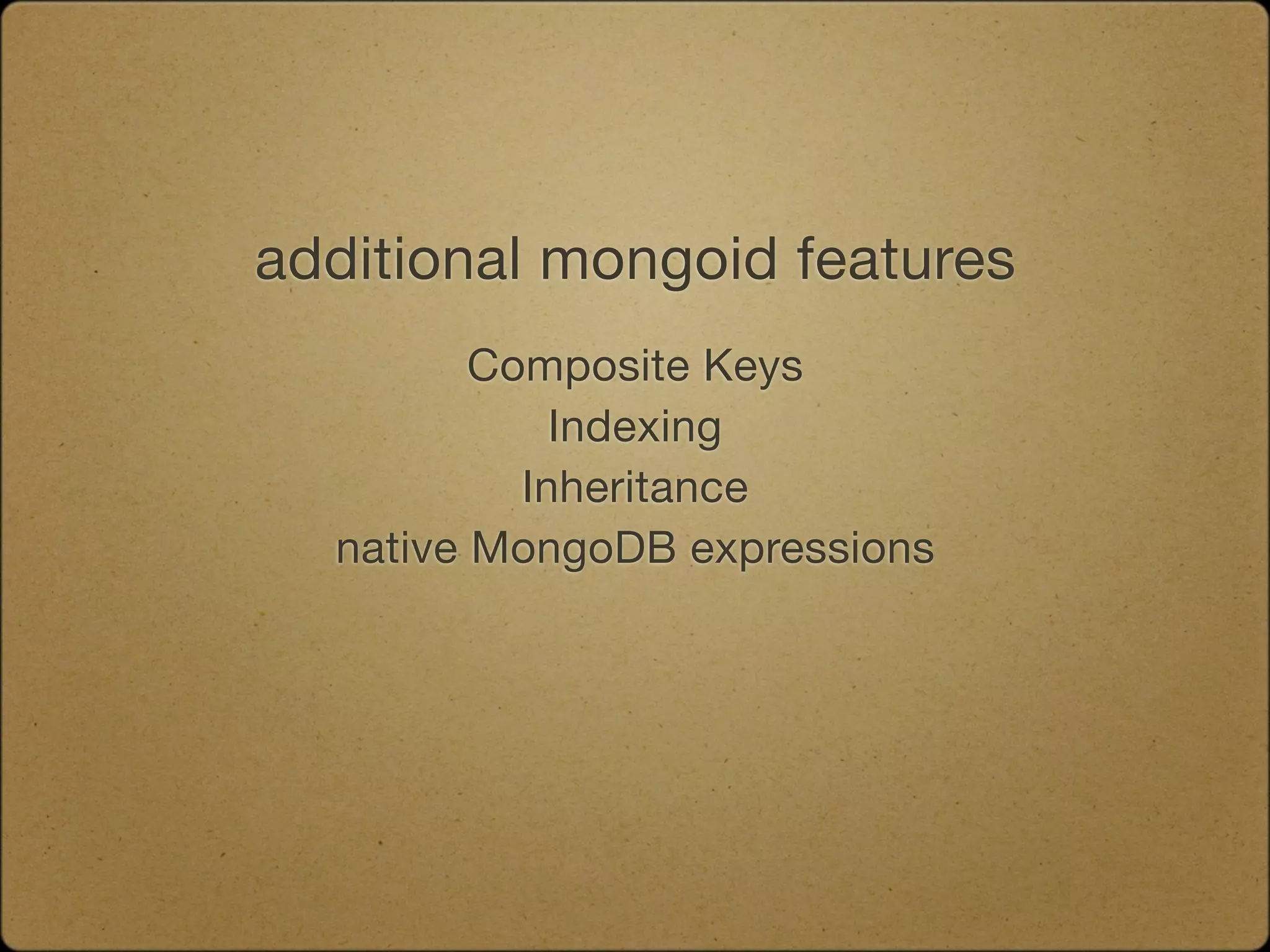The document discusses MongoDB and the Mongoid ORM for Ruby. It provides examples of using Mongoid to define MongoDB document schemas and associations, perform queries, and leverage features like validation, versioning, and aggregation. Overall, the document shows how Mongoid allows developers to interact with MongoDB documents in a similar way to ActiveRecord while taking advantage of MongoDB's flexible document data model.
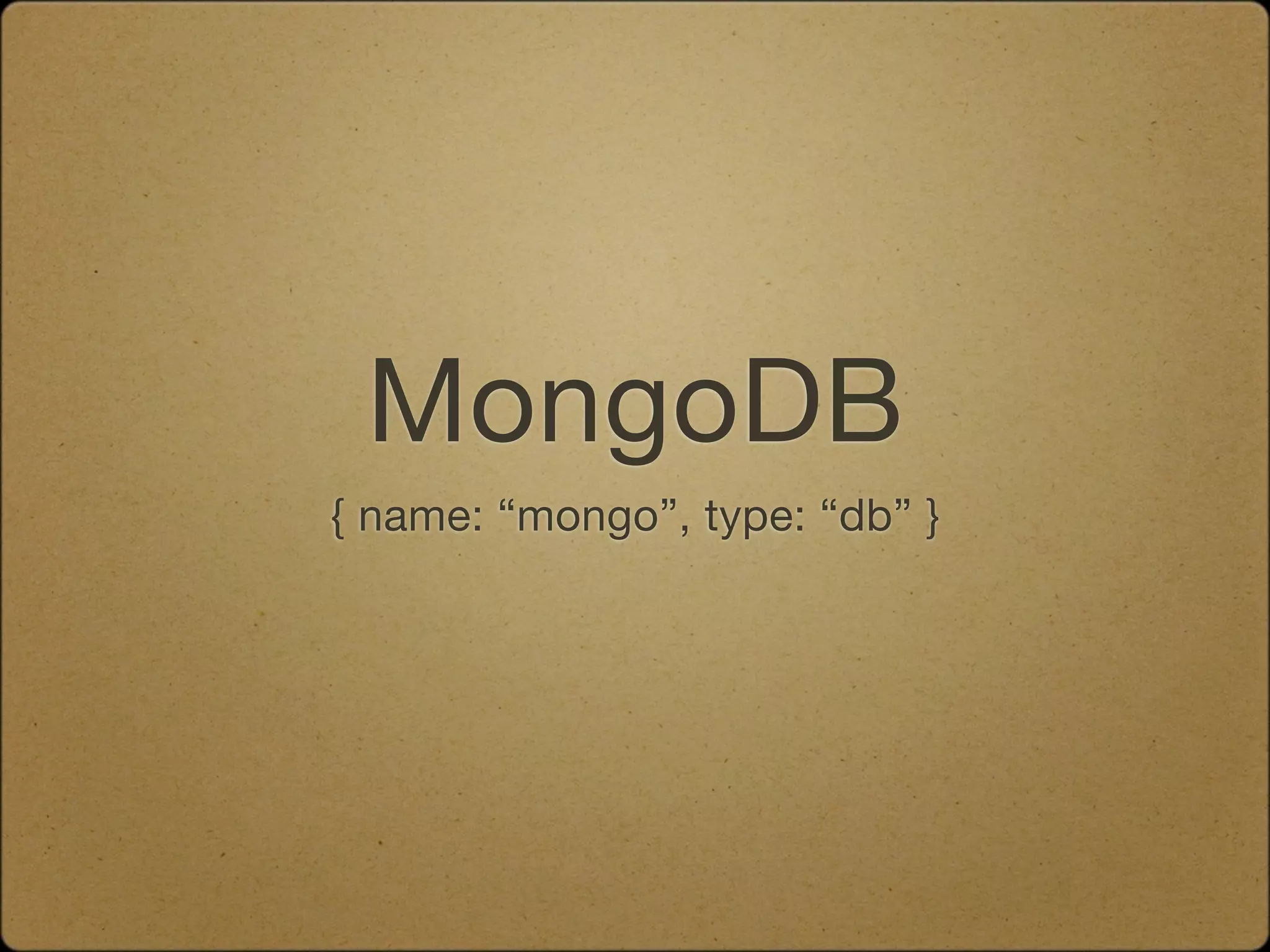
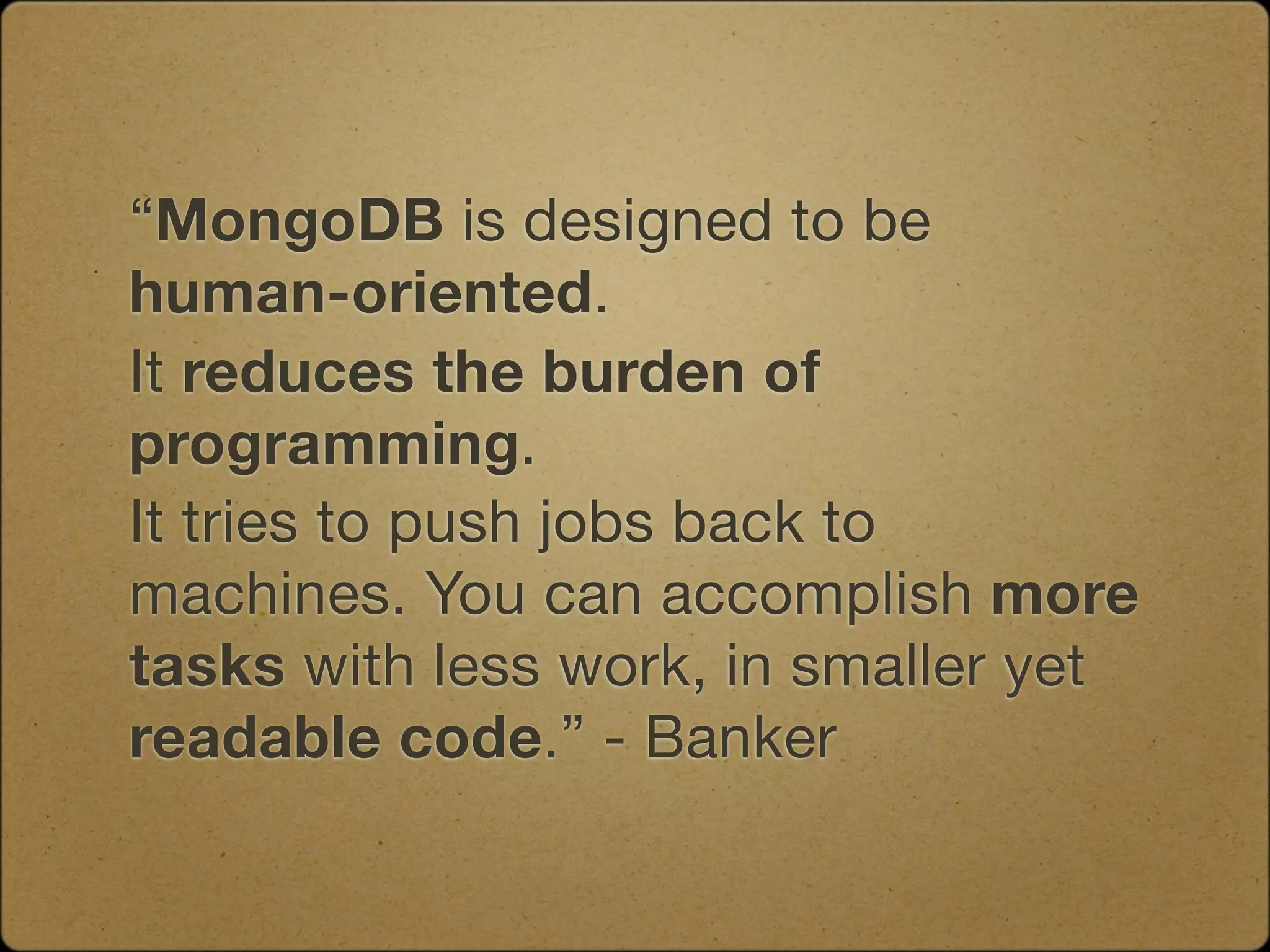
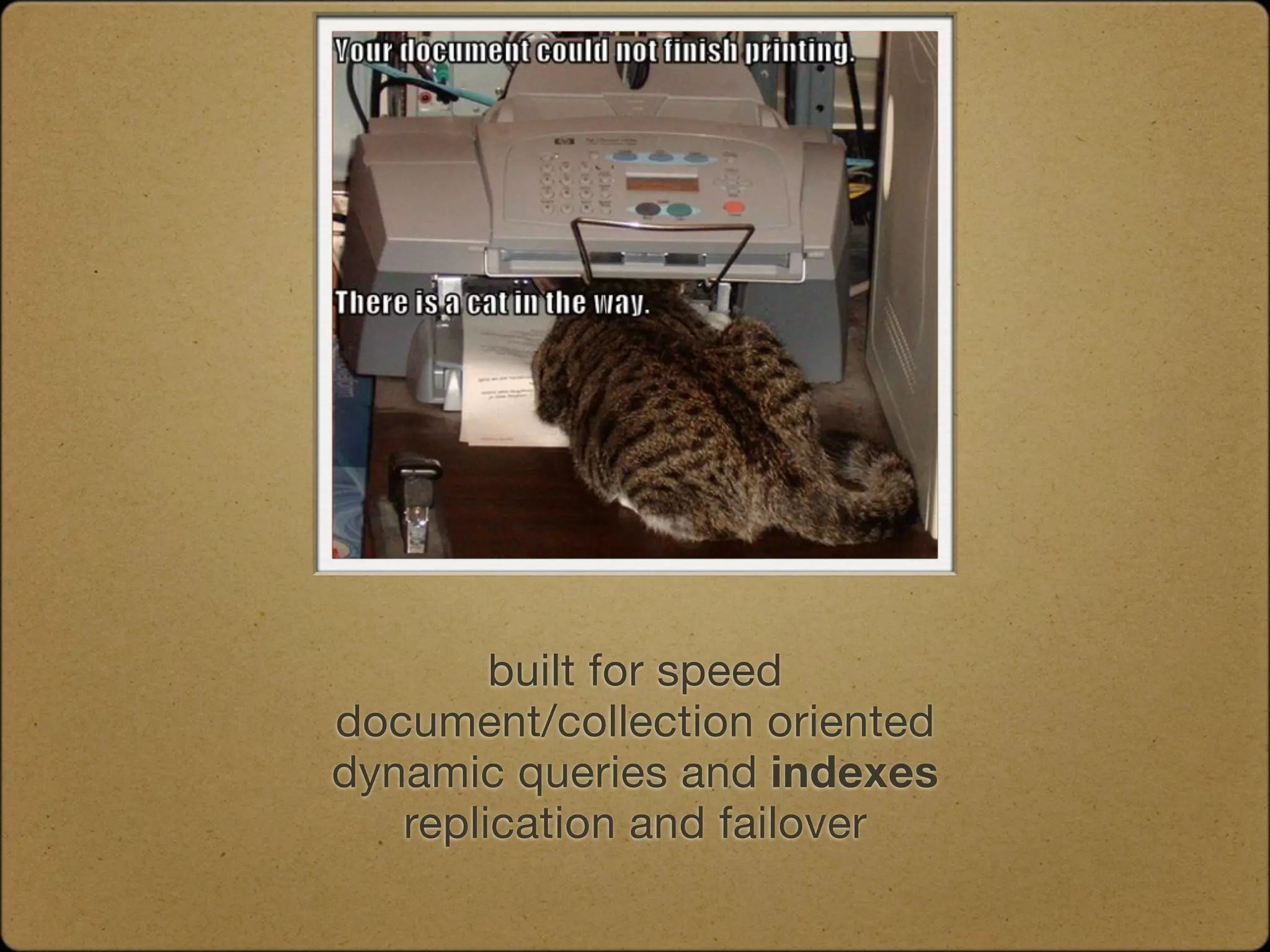

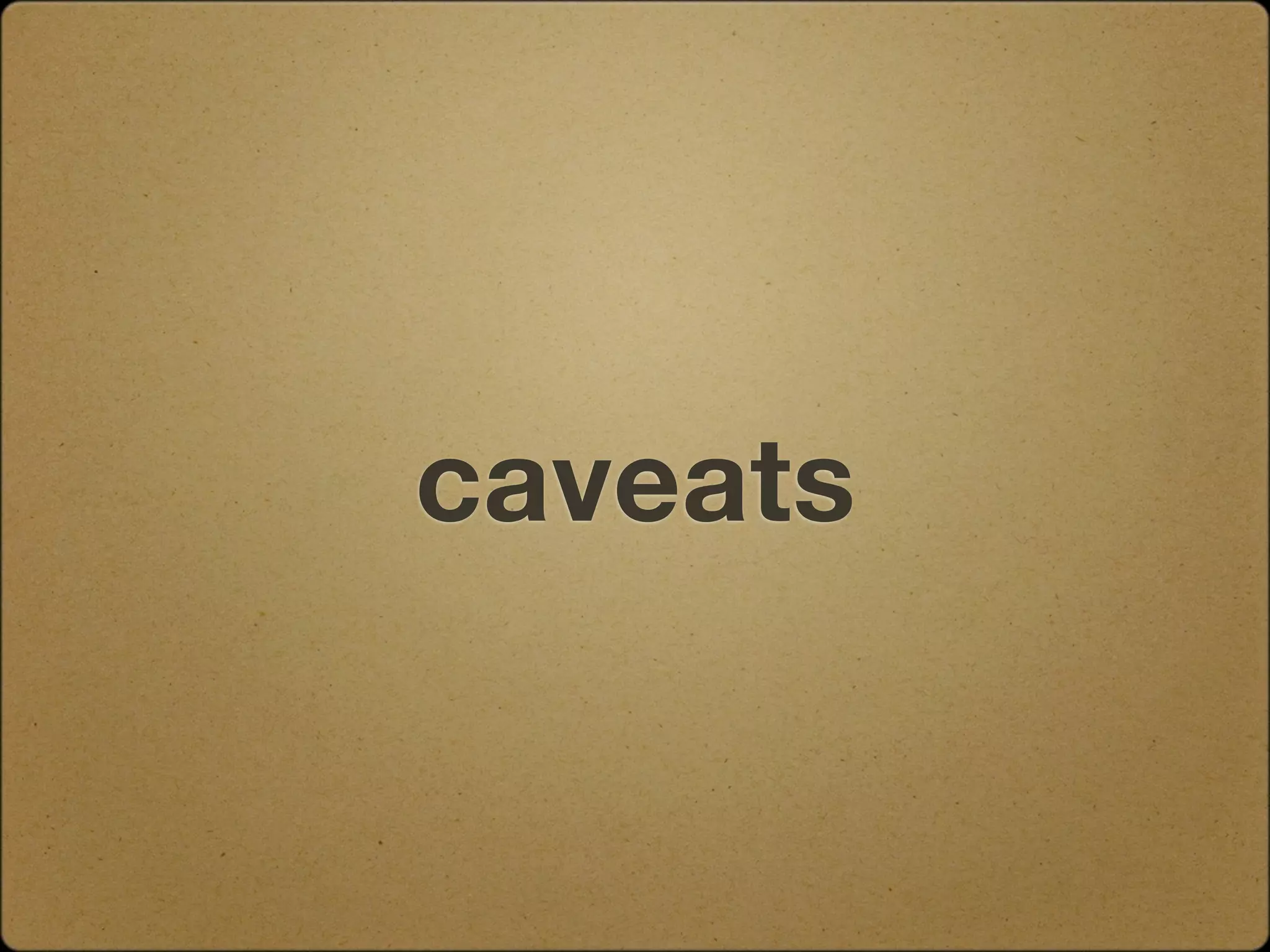



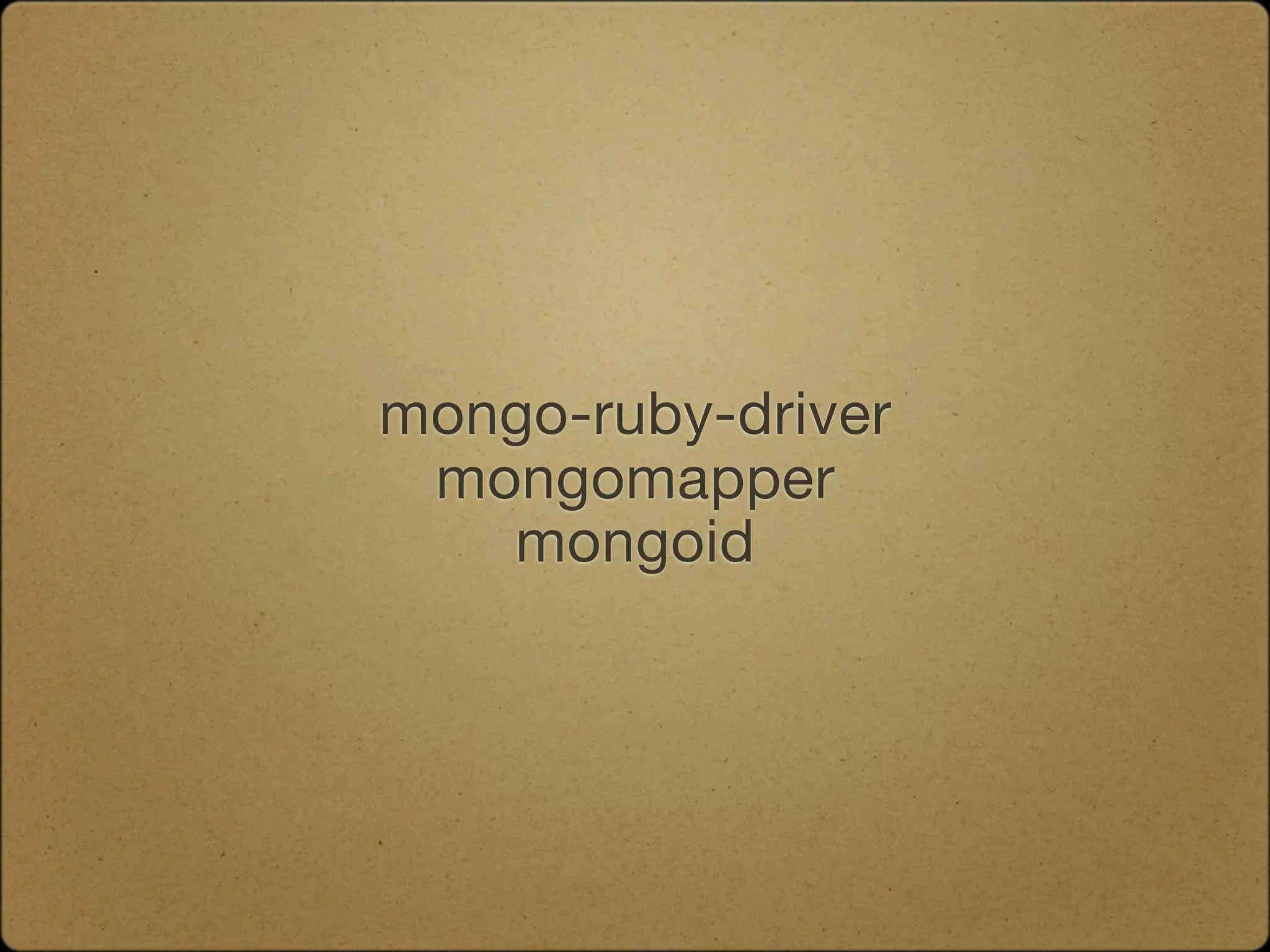
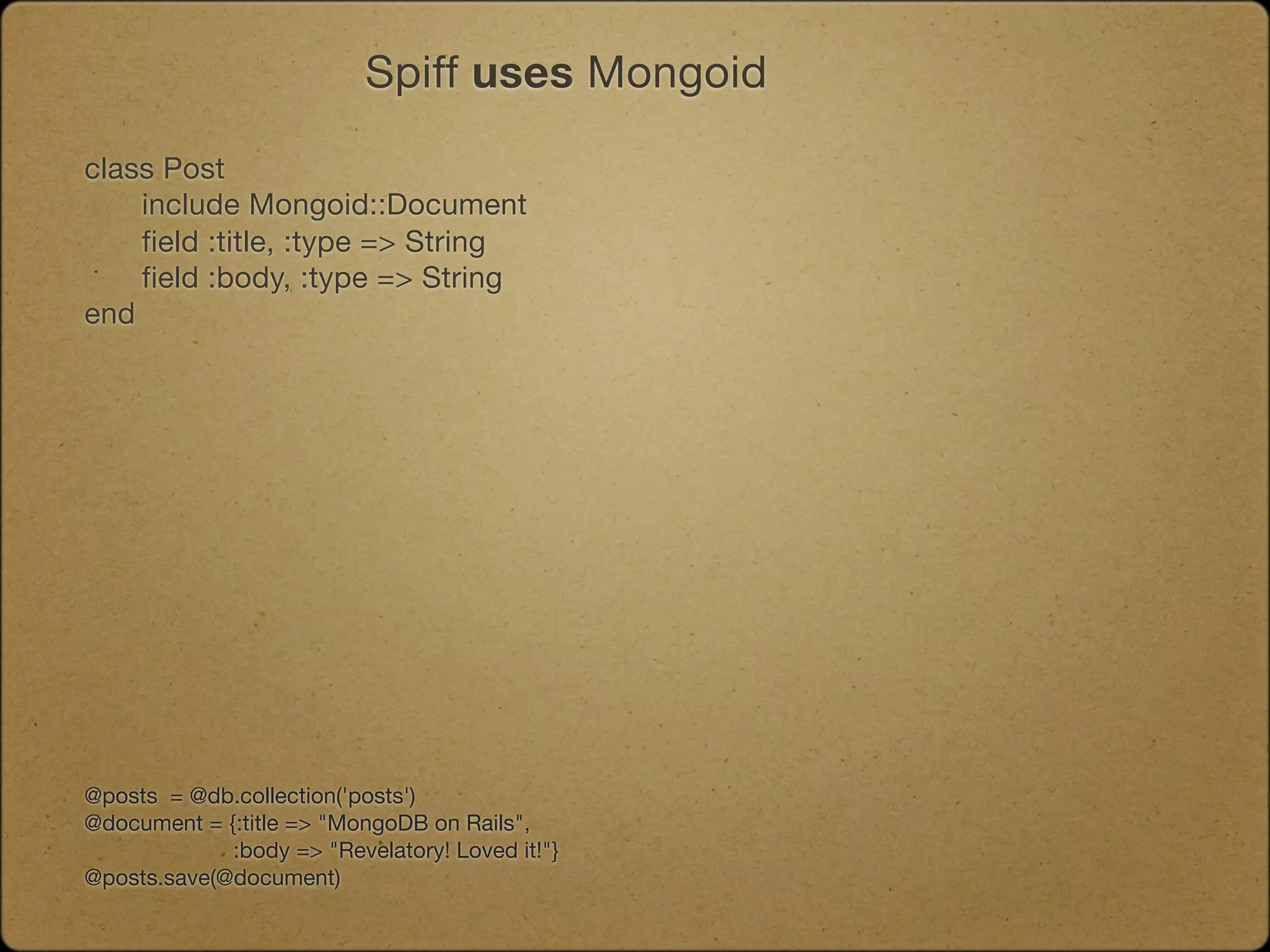
![Associations in Mongoid
class Post
include Mongoid::Document
field :title, :type => String
field :body, :type => String
has_many :comments
end
class Comment
include Mongoid::Document
field :rant, :type => String
belongs_to :post, :inverse_of => :comments
end
This creates an Embedded Document.
@posts = @db.collection('posts')
@document = {:title => "MongoDB on Rails",
:body => "Revelatory! Loved it!",
:comments => [{:rant => “I completely disagree”}]
}
@posts.save(@document)](https://image.slidesharecdn.com/mongodb-100120142350-phpapp02/75/MongoDB-Mongoid-with-Rails-11-2048.jpg)
![Keys, Validations, Timestamps & Hooks
class Post
include Mongoid::Document
include Mongoid::Timestamps
field :title, :type => String
field :body, :type => String
field :slug, :type => String
has_many :comments
has_key :title, :unique => true # “Audi IMS” becomes “audiims”
validates_presence_of :title, :body
validates_unqiueness_of :title
before_save :set_slug
def set_slug
self.slug = “#{title.parameterize}-#{body[0..3]}”
end
end](https://image.slidesharecdn.com/mongodb-100120142350-phpapp02/75/MongoDB-Mongoid-with-Rails-12-2048.jpg)
![Versioning a Mongo Document
class Post
include Mongoid::Document
include Mongoid::Timestamps
include Mongoid::Versioning
field :title, :type => String
field :body, :type => String
field :slug, :type => String
has_many :comments
has_key :title, :unique => true # “Audi IMS” becomes “audiims”
validates_presence_of :title, :body
validates_unqiueness_of :title
before_save :set_slug
def set_slug
self.slug = “#{title.parameterize}-#{body[0..3]}”
end
end](https://image.slidesharecdn.com/mongodb-100120142350-phpapp02/75/MongoDB-Mongoid-with-Rails-13-2048.jpg)
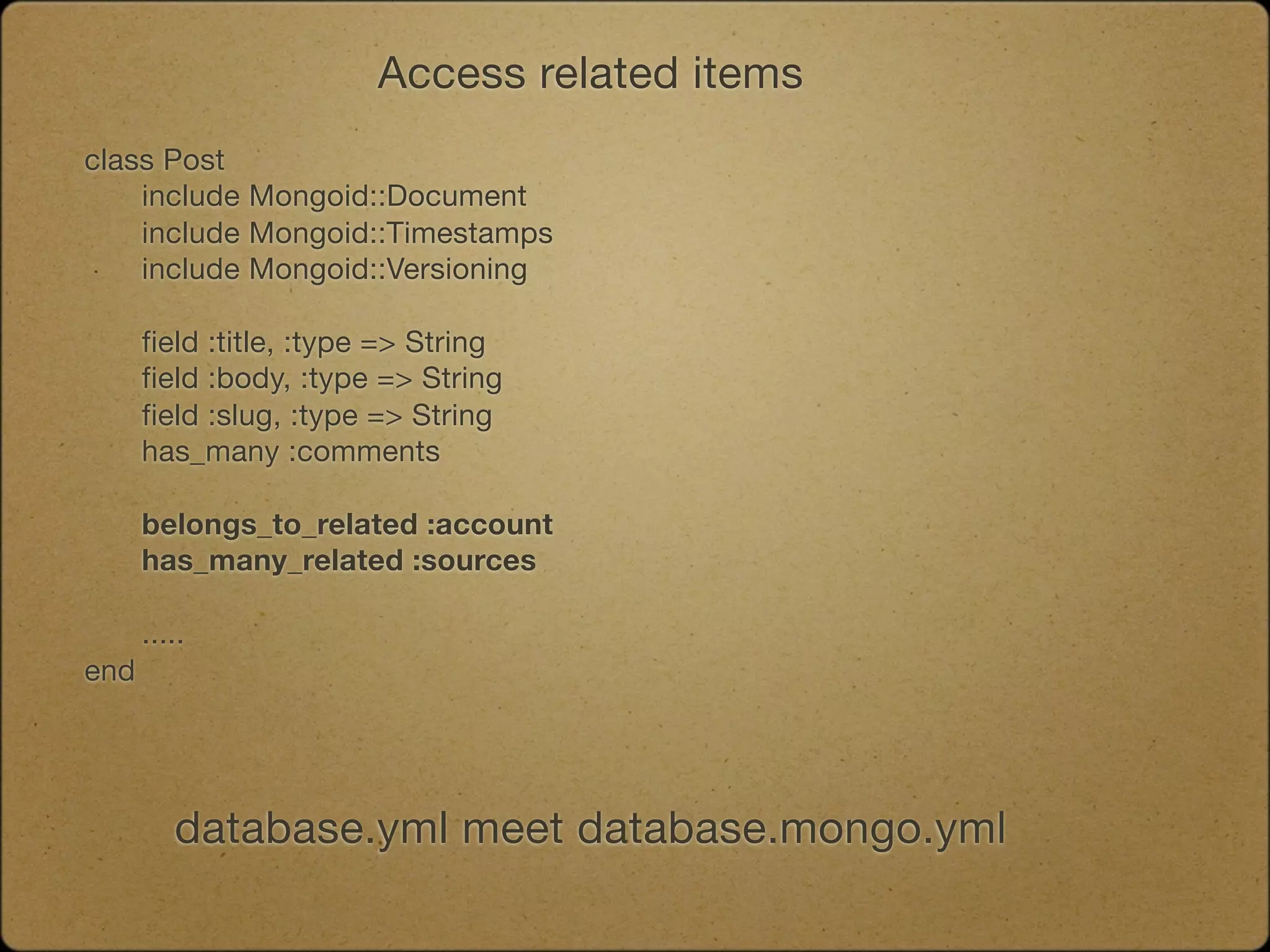
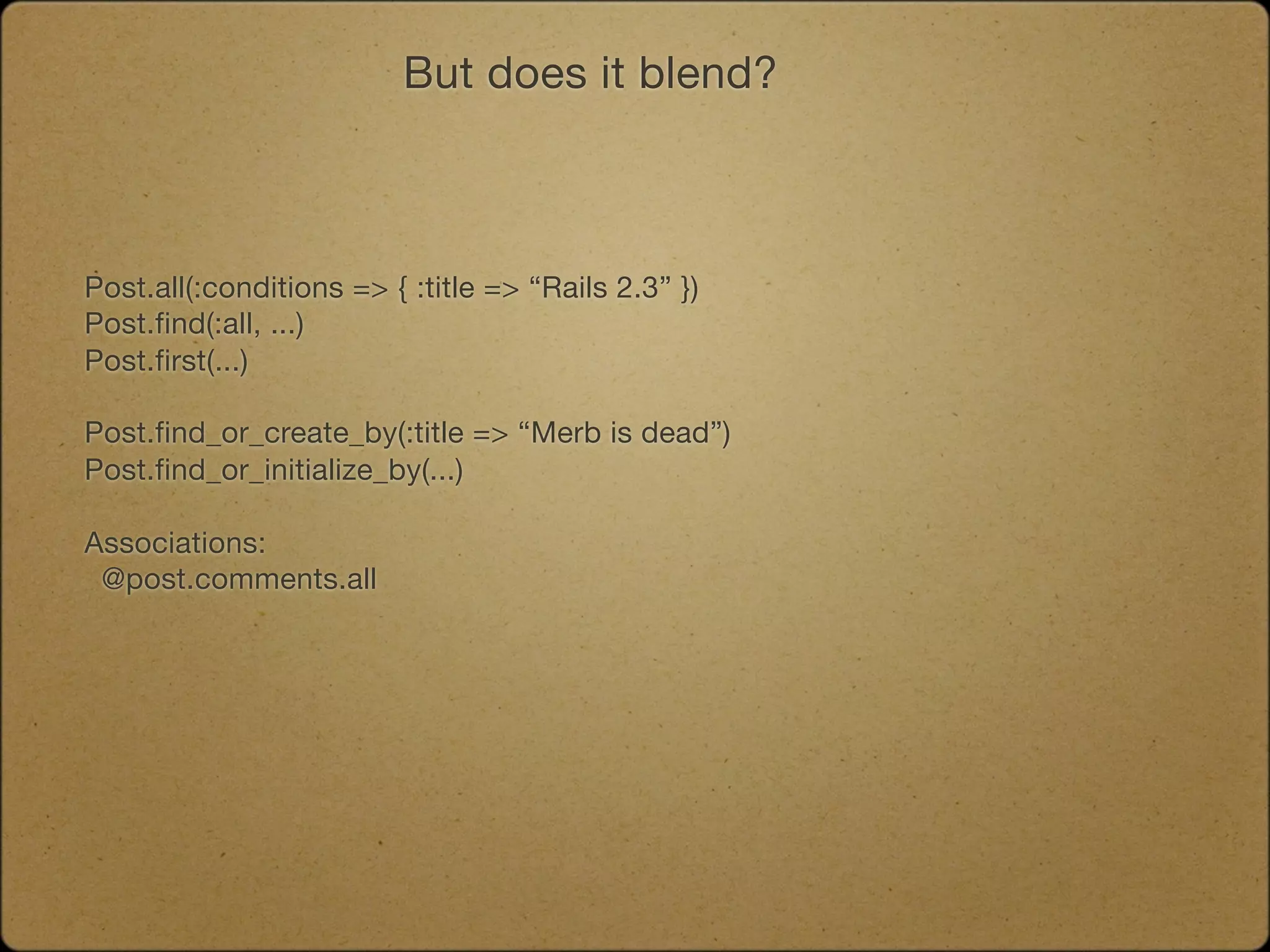
![fuck SQL! Criteria is the shit.
Criteria#all - perform exact matches
Post.criteria.all(:title => [ “Rails”, “2.3” ])
Criteria#find - match key/value
Post.criteria.and(:created_at.gt => 2.months.ago)
Criteria#exclude
Post.criteria.exclude(:created_at => Date.today)
Criteria#id - match document id
Post.criteria.id(“4b2fe28ee2dc9b5f7b000029”)
Criteria#in - match any of the values in an array
Post.criteria.in(:title => [“Merb”, “Rails”, “Ruby”]
Criteria#order_by
Post.criteria.order_by([[:created_at, :desc], [:title, :asc] ])
Criteria also has #limit, #not_in, #only, #skip](https://image.slidesharecdn.com/mongodb-100120142350-phpapp02/75/MongoDB-Mongoid-with-Rails-16-2048.jpg)
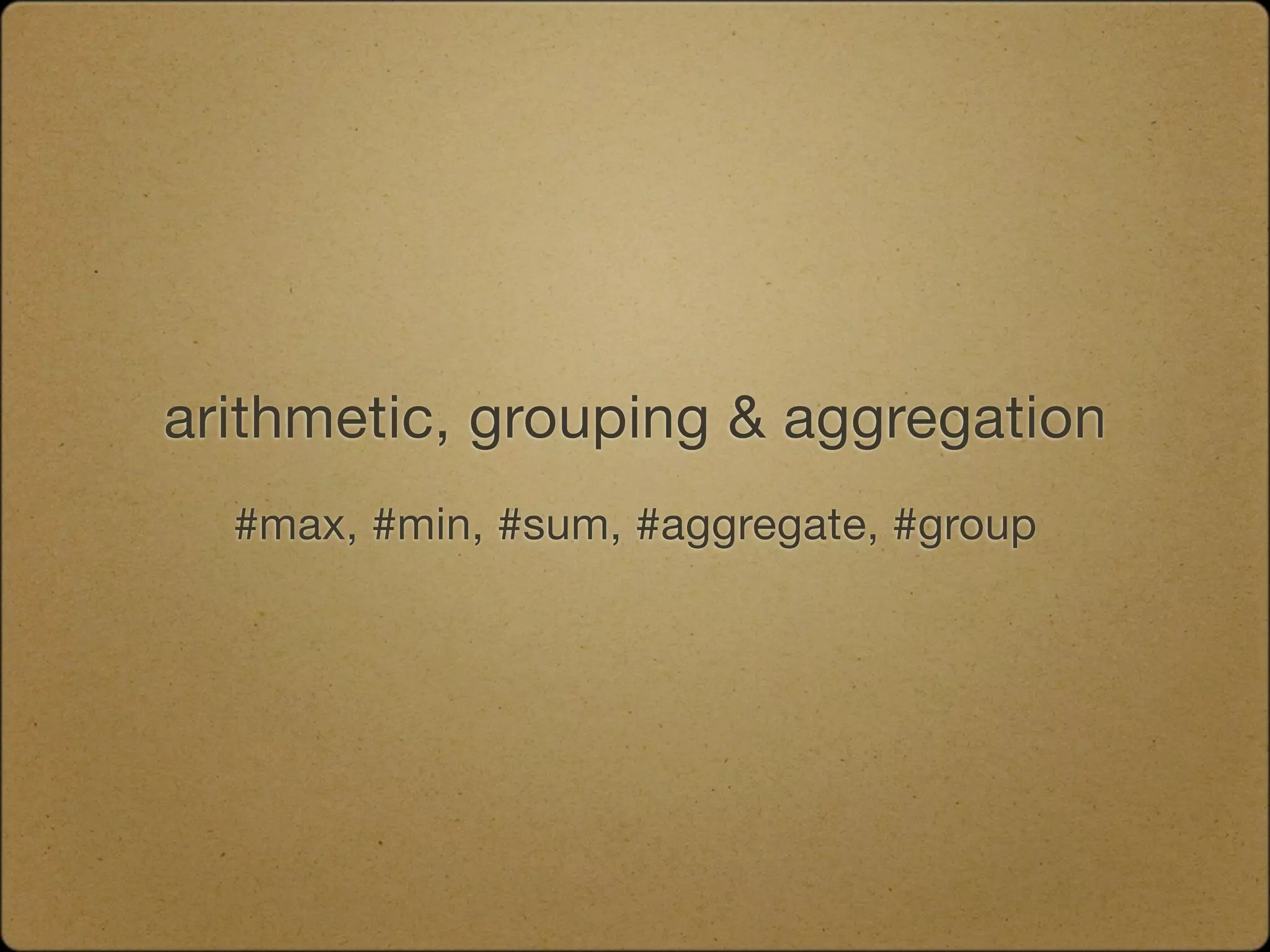
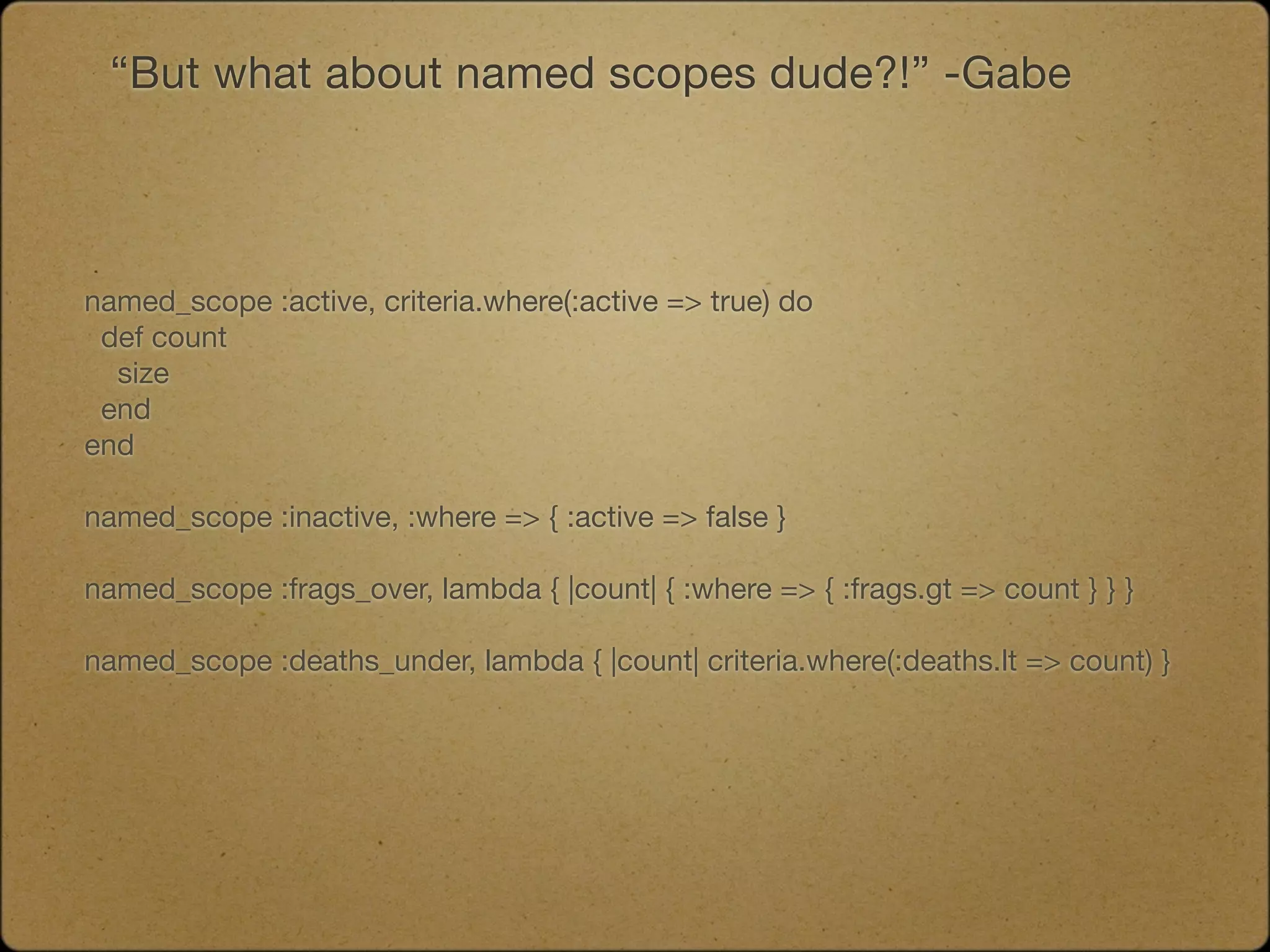
![You can chain any of the Criteria API
Post.in(:title => [“Rails”, “Ruby”]).where(:created_at.gt => 2.months.ago).skip(10)
class Post
include Mongoid::Document
class << self
def ruby_related
criteria.in(:title => [“Ruby”, “Rails”])
end
def in_last_two_months
criteria.where(:created_at.gt => 2.months.ago))
end
end
end
Post.ruby_related.in_last_two_months](https://image.slidesharecdn.com/mongodb-100120142350-phpapp02/75/MongoDB-Mongoid-with-Rails-19-2048.jpg)
